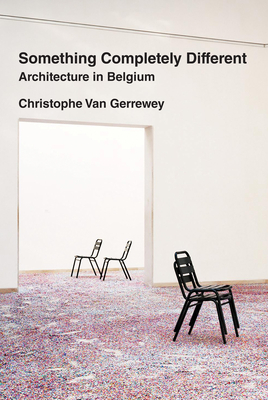
Van Gerrewey, Christophe
product information
description
its very beginnings, has epitomized modernity and singularity. Since the foundation of the country in 1830, architecture in Belgium has been an expression of the key issues of modern Western societies. In Something Completely Different, Christophe Van Gerrewey uses this small European country as a case study to describe, interpret, and criticize more universal spatial problems and behaviors. In seven wide-ranging essays, he looks at the activities of architects from the past two centuries to better understand political evolutions, social gaps, aesthetic considerations, housing and planning, transport and infrastructure, order and chaos, and culture and ecology. The result is a literary text full of surprises and discoveries, showing both the shortcomings and the merits of what architects do. Written as a kind of anti-guidebook, Something Completely Different appropriates certain clichés about Belgium (Baudelaire famously called Belgian monuments "counterfeits of France"), eschews the pragmatism of most guidebooks in favor of meditative, essayistic prose, and finally, cunningly, reveals that all along the subject has not been Belgium at all, but rather the nature of architecture.
member goods
No member items were found under this heading.
Return Policy
All sales are final
Shipping
No special shipping considerations available.
Shipping fees determined at checkout.







